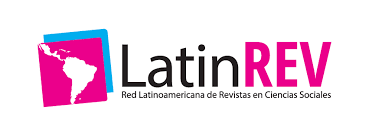The substantiated report: An essential evidence in environmental crimes?
Abstract
This article reviews the regulations made to the substantiated report, as well as its role and importance in criminal proceedings on environmental crimes. Furthermore, considering the new needs in the investigations into those crimes, this article proposes improvements in the issuance and preparation of a substantiated report, and addresses the main questions around it.
Downloads
Métricas alternativas
References
Comisión Económica para América Latina y el Caribe (2021). La pérdida de los bosques en América Latina y el Caribe 1990-2020: evidencia estadística. https://repositorio.cepal.org/bitstream/handle/11362/47151/S2100266_es.pdf?sequence=1&isAllowed=y
Congreso de la República (1996). Ley n.° 26631. Lima: 19 de junio de 1996.
Congreso de la República (2005). 13.a sesión (matinal). https://www2.congreso.gob.pe/Sicr/DiarioDebates/Publicad.nsf/SesionesPleno
/05256D6E0073DFE90525709A001532A7/$FILE/PLO-2005-13.pdf
Congreso de la República (2008). Ley n.° 29263, Ley que modifica diversos artículos del Código Penal y de la Ley General del Ambiente. Lima: 1 de octubre de 2008. https://cdn.www.gob.pe/uploads/document/file/385602/Ley_N__2926320191013-25586-1xkw7bj.pdf?v=1570990327
Instituto Nacional de Estadística e Informática (2020). Perú: Anuario de estadísticas ambientales 2020. https://www.inei.gob.pe/media/MenuRecursivo/publicaciones_digitales/Est/
Lib1760/libro.pdf
Ministerio Público - Fiscalía de la Nación (2022, 18 de agosto). Directorio de la Coordinación Nacional de las Fiscalías Especializadas en Materia Ambiental. https://www.gob.pe/institucion/mpfn/informes-publicaciones/2546294-directorio-de-la-coordinacion-nacional-de-las-fiscalias-especializadas-en-materia-ambiental
Observatorio de Justicia Ambiental del Poder Judicial del Perú (2022). [Aplicativo de la Comisión Nacional de Gestión Ambiental del Poder Judicial]. https://sap.pj.gob.pe/soja-web/#/principal
Observatorio de Solución Problemas Ambientales (2022). Información general. https://datastudio.google.com/embed/u/0/reporting/46eba170-6c4f-4356-85ce-d54dd0fe9d60/page/x4aeB
Organismo de Evaluación y Fiscalización Ambiental (2022). Portal Interactivo para las Fiscalías Especializadas en Materia Ambiental. https://www.oefa.gob.pe/cofema/
Ragusa, A., Svelato, A., Santacroce, C., Catalano, P., Notarstefano, V., Carnevali, O., Papa, F., Rongioletti, M. C. A., Baiocco, F., Draghi, S., D’Amore, E., Rinaldo, D., Matta, M. y Giorgini, E. (2021). Plasticenta: First evidence of microplastics in human placenta. Environment International, 146, 1-8. https://doi.org/10.1016/j.envint.2020.106274
Servicio Nacional Forestal y de Fauna Silvestre (2017). Estrategia nacional para reducir el tráfico de fauna silvestre en el Perú (2017-2027) y su plan de acción 2017-2022. https://www.serfor.gob.pe/portal/wp-content/uploads/2017/09/PRESENTACION-DE-LA-ESTRATEGIA-NACIONAL-PARA-REDUCIR-EL-TRAFICO-ILEGAL-DE-FAUNA-SILVESTRE.pdf
WWF (2020). Informe Planeta Vivo 2022: Hacia una Sociedad con la Naturaleza en Positivo. https://wwfes.awsassets.panda.org/downloads/descarga_informe_planeta
_vivo_2022.pdf
Copyright (c) 2022 Fiorella Chinchay Habich

This work is licensed under a Creative Commons Attribution 4.0 International License.











